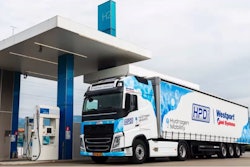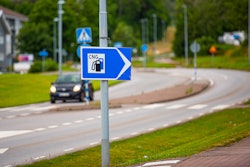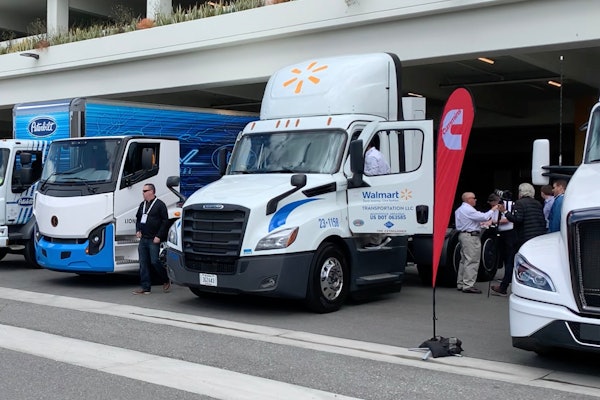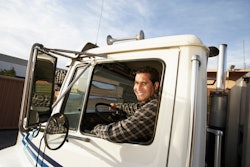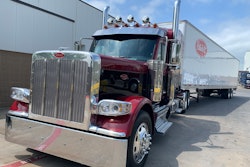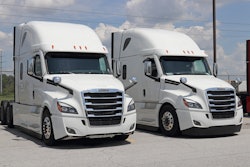Freightliner debuted its on-highway flagship Cascadia in 2007, and has sold 800,000 units in the 15 years since. The truck itself has undergone multiple design and technology changes in that time, but likely none more significant than the deployment of an all-electric version.
A fully battery electric eCascadia made its debut in 2018 as a proof of concept before swiftly being handed off to demonstration fleets with almost 50 trucking customers running real freight in the real world. To-date, Freightliner electric trucks have logged well over one million miles in day-to-day operations, pulling real loads and making real drops.
Rakesh Aneja, vice president and chief of eMobility at Daimler Truck North America, said the rigorous testing and development cycle resulted in a production-ready model, which was unveiled Monday at the ACT Expo in Long Beach, California, featuring multiple battery and drive axle options and a typical range of 230 miles, depending on vehicle configuration.
[Related: GNA sees 'perfect storm' increasing demand for alt fuel trucks]
Ideally suited for short-haul routes that allow for depot-based charging, eCascadia is powered by the Detroit ePowertrain. The eAxle is an electric drivetrain component integrated with an electric motor, transmission and specialized electronics within a compact unit. Detroit’s ePowertrain provides two eAxle designs, including a dual motor with max torque of 23,000 lb-ft and max power of 395 hp and a single motor featuring a max torque of 11,500 lb-ft and max power of 195 hp.
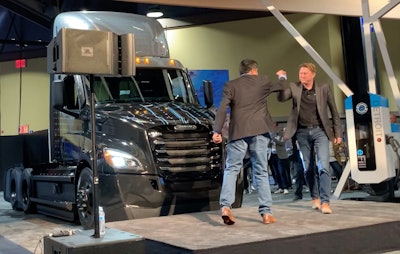 Rakesh Aneja, vice president and chief of eMobility at Daimler Truck North America, gives a celebratory first bump to Freightliner eCascadia lead engineer Andreas Juretzka moments after the truck was revealed Monday at the Advanced Clean Transportation Expo in Long Beach, Calif.
Rakesh Aneja, vice president and chief of eMobility at Daimler Truck North America, gives a celebratory first bump to Freightliner eCascadia lead engineer Andreas Juretzka moments after the truck was revealed Monday at the Advanced Clean Transportation Expo in Long Beach, Calif.
The Detroit ePowertrain offers three battery options for a range of sizes and average, zero-to-full charging times starting with 194 kWh (one and a half to three hours), 291 kWh (two to four hours), and 438 kWh (two to six hours). Regenerative braking helps maximize range and across the pilots, the average energy recuperation ratio was 20%-25%, with some drivers achieving even up to 30%.

